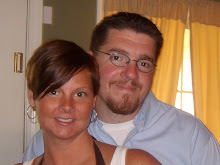Slippery Slope of Self-Determination
Read Exodus 1:2-10 (Can't hurt ya to read it again)
"Then Pharaoh gave this order to all his people:
"Every boy that is born you must throw into the Nile, but let every girl live." v.22
Anger, malice, and contempt are a fertile soil for irrationality and self-destructive behavior. For the last couple days we have been looking at the various ironies found in the first two chapters of Exodus. One of the most profound ironies is located in the actions of Pharaoh. This national leader has determined, whatever the cost, to ensure that his throne is in no way threatened by the presence of the Israelite people. The problem is no matter how hard he works to oppress the people, God's abundance can't seemed to be stiffled. At this point, we encounter a battle of wills of cosmic proportion.
Pharaoh has determined in his mind to have it "his way." He initially attempts to coerce the Hebrew Midwives to kill all Hebrew boys as they are being delivered. What he fails to recognize in his anger and self-determination is that this manipulative tactic will eventually undermine his own entire economic system based upon the slave-labor of the Israelite men; no boys, no slaves. Unable to accomplish this plan (those darn midwives), he in essence loses his mind to his anger and control and issues a decree that all boys are to be thrown in the river Nile when they are born. Again, his self-determination has led him to issue a decree that will eventually threaten the stability of his entire nation, a stability that he sought to protect in the first place; no boys, no army...
When our lives have succumb to the pressures of control and anger we find ourselves on a very slippery slope. We begin to make decisions and take actions that are based on an entirely limited emotional perspective. We surrender our ability to examine situations logically and prayerfully. We are caught up in a whirlwind of chaotic behavior, oftentimes subverting our own hopes and plans. The lover spurned who has decided to get even, the bullied child who acts out in revenge, the co-worker who calls into question the integrity of someone in line for promotion...or whatever situation of self determination, these will eventually lead to one's own undoing. Peace comes only as we recognize that we are bound to lose all cosmic battles of will. Only as we surrender to God our need to control and relinquish our anger, malice, and contempt are we able to "find our way" (or perhaps led down the right way).
